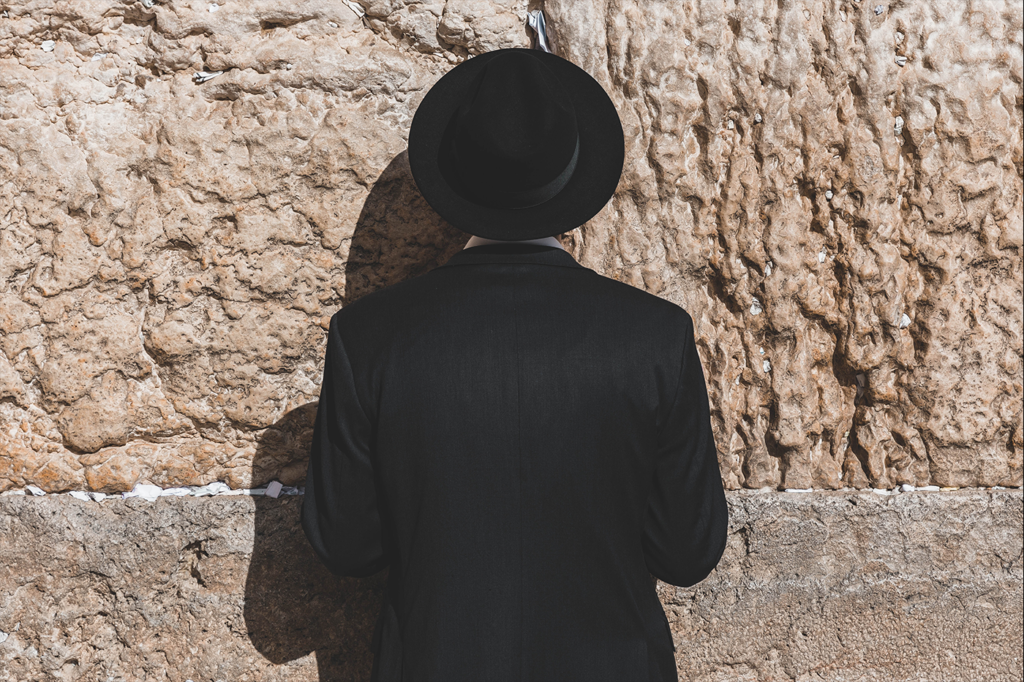Among the various strands of Judaism, Modern Orthodoxy distinctively attempts to combine traditionalism and worldliness. This is one of its defining features and, for its adherents, one of its chief attractions. But this best-of-both-worlds approach invites unique challenges as well, especially in a world where ancient Jewish values and contemporary social norms are increasingly at odds. To meet this challenge, that is, to continue to embrace the good that Western civilization has to offer while still drawing lines against ideological capitulation, Modern Orthodox Jews must confront the meaning of their beliefs and practices. They need to rediscover the reasons behind the values that set them apart from much of the surrounding culture today. Without the offering of reasons, rabbis’ insistence on blindly following tradition—even if warranted—will fall flat and allow many Jews to be led into error. Alas, Jewish Orthodoxy has lost touch with the logic behind many of its ways, so it would do well to learn from University of Toronto philosopher and theologian David Novak, who has dedicated much of his life’s efforts to expounding the natural law elements of Judaism.
To understand the impact of David Novak’s work, it’s first necessary to recognize that he is the only prominent Jewish natural law thinker in the world today. I share his commitments to traditional Judaism and natural law (with some difference), and I find the breadth and depth of his learning and erudition to be spellbinding. Frankly, they are unparalleled among people of our commitments. On top of all this, Novak is a deeply humane and decent person—a real mensch, to use one of Judaism’s highest terms of praise.
Although David Novak technically heads his own micro-denomination, the Union for Traditional Judaism, sociologically speaking it would be fair to categorize him as Modern Orthodox. Modern Orthodoxy and Ultra-Orthodoxy represent the two main divisions of the most traditional, or small “o” orthodox, of the three major Jewish denominations: Orthodox, Conservative, and Reform. Although Novak was ordained in a Conservative Jewish seminary, the leftward drift of the movement (along with that of its more liberal counterpart, Reform Judaism) made him a man without a party.
Though there is no formal definition, Ultra-Orthodoxy is distinctive for its strictly instrumental engagement with the wider culture, that is, an in-principle rejection of the intrinsic value of the culture—philosophy, literature, art, and so on—of non-Jewish civilization. Modern Orthodoxy, by contrast, accepts that there can be knowledge and pursuits that are intrinsically worthwhile outside strict Jewish boundaries. For this reason, Modern Orthodoxy welcomes engagement with the wider culture, ideally without compromising tradition and transmission, whereas Ultra-Orthodoxy tries to minimize engagement and maximize insularity.
Start your day with Public Discourse
Sign up and get our daily essays sent straight to your inbox.All of this is relevant because it means that, within Judaism, Modern Orthodoxy is uniquely situated with respect to the challenges that modern society presents to religious believers. Unlike Conservative and Reform Judaism, Modern Orthodoxy stands athwart the secularizing, progressive trends in favor of the Jewish tradition. And, unlike Ultra-Orthodoxy, Modern Orthodoxy is deeply engaged in the world that is grappling with those issues.
In other words: while the liberal Jewish denominations embrace the cultural changes that surround us and Ultra-Orthodoxy mostly refuses to acknowledge or address the conflicts between religion and contemporary culture, Modern Orthodoxy chooses to live in the world but not be of the world. In sum, among Jews, only the Modern Orthodox face the culture wars head on.
In all of this, David Novak stands almost alone only because he is committed not only to the Jewish tradition but also to the natural law tradition (though I don’t mean to equate the natures of these two commitments).
This may sound surprising to those who see natural law rooted in the Bible, which is certainly something affirmed by the Catholic Church. Nevertheless, I think it is fair to say that, among Orthodox, or traditional, Jews, very few know what natural law is. Neither the phrase nor the concept is part of a standard Jewish education. Among those who have heard of natural law, very few know what it has to do with Judaism, and among those who do think of the relationship between Judaism and natural law, most of those deny that it does have anything to do with Judaism. And even the few who do accept some natural law content in Judaism probably do not agree on what it is or at least try to minimize its scope and relevance. Taken together, this means that David Novak is essentially a minority of one. And undoubtedly there is no one else with Novak’s depth of both Jewish and philosophical knowledge who recognizes, studies, and writes about Judaism and natural law.
The Importance of David Novak—and Natural Law—for the Future of Judaism
It is difficult to overstate the importance of Novak and his work for the future of Judaism and, specifically, for that part of Judaism that is invested both in the tradition and in the world around it.
About six months ago, I was the scholar-in-residence at a very large synagogue in the New York metro area, a region that has by far the largest concentration of Jews outside Israel. A normal scholar-in-residence gig at an Orthodox synagogue involves speaking three times over the course of the Sabbath, which I did, with my final talk covering American religious freedom and the Jews.
After the Sabbath, a young man approached me, told me he had attended and enjoyed all three of my talks, and asked whether he could send me an op-ed he had written for a Jewish paper. Given that he sat through three speeches of mine in less than twenty-four hours, I figured that the least I could do was read his article. In brief, his argument was that anyone who could not provide services for same-sex weddings—cakes, photography, flower arrangements, and so on—should leave that line of work. He acknowledged, grudgingly, that the First Amendment protected people’s rights to refuse in these areas, but he argued that, in a decent society, decent people should do their best to minimize the harm they impose on others due to their beliefs, religious or otherwise. That is, even though people have a right to discriminate under the Constitution, they shouldn’t discriminate.
Now, without going into the details of his view, which he and I discussed further in a subsequent email exchange, what is abundantly clear is that his view is premised on the belief that the refusals by the various proprietors constitute morally illicit discrimination, what former Justice Kennedy might call “animus,” hatred lacking a rational basis. In other words, the young man’s view only gets off the ground because he assumes the Jewish view on homosexuality is wrong and irrational. It remains to be seen whether he will follow Reform and Conservative Judaism and a left-wing movement from within Modern Orthodoxy called Open Orthodoxy in challenging (or denying) the authority of the traditional teaching.
What distinguishes this dispute within Judaism from, say, the dispute within Catholicism is the absence of any conscious, salient philosophical tradition on which to draw. As a result of this absence, statements from rabbinic associations have mainly fallen back on an uneasiness about breaking with tradition. The argument is generally something like this: “We have not done this thing historically, and therefore we are not ready to do it now, if ever.” Adhering to traditional mores is rather understandable, but it is simply not persuasive for those who see many other ways in which Modern Orthodoxy has departed from the old ways, at least in cases where there is no bright-line prohibition.
With same-sex relationships, the pain of discerning the way forward is more acute, due to both the pressure to change and the severity of the violations if changes are made. If all the rabbinic establishment has to offer in the face of calls for social justice is a verse from Leviticus—not that the word of God shouldn’t be enough for the faithful—it will lose the argument. There is no doubt that, just as in other communities, a significant portion of the flock will be lost when people are not properly catechized. It is not, God forbid, that the rabbis ought to adapt the law to contemporary trends, but that they ought to explain their position.
The sociological and theological stakes are very high. With no explanation for what the other side rightly sees as an issue fraught with ethical gravity, the orthodox rabbis leave people with the impression of a God who is cruel and arbitrary, who creates people with same-sex attraction and then forbids them to act on it—not for their own good or for anyone else’s, but with the same arbitrariness with which he prohibits garments made of wool and linen together, or permits eating beef but not bacon.
In Jewish law, there is a distinction between two types of laws: chok and mishpat. A chok is a law that is not rational (though not, strictly speaking, irrational), such as the aforementioned rules concerning clothing and food, as well as family purity and much else in ritual law. A mishpat is a rational law, one that the Talmud says we “would have written” even if it had not been commanded. For a defense of Orthodox Judaism in the modern world, it matters immensely that we understand the Jewish view of sex and sexuality to be a matter of mishpat, in the rational realm—the realm of natural law.
Nowadays, most Modern Orthodox Jews, like the young man who wrote that op-ed, could not mount a rational defense of Jewish sexual laws. Even more critically and astoundingly, they do not even have a sense that Jewish sexual laws are in the realm of the rational. Obviously, we will never be able to convince anyone that a prohibition on same-sex activity, or anything else, is a mishpat and not a chok if we can’t offer any reasons.
If I am right that David Novak is the only person—I think literally the only one—who provides the framework and the resources for meeting this challenge, then the future of Modern Orthodoxy—that is, of faithful and worldly, engaged Judaism—depends on building on what he has begun. And that, to me, makes his work terribly important.













